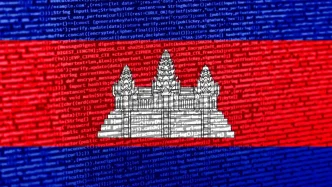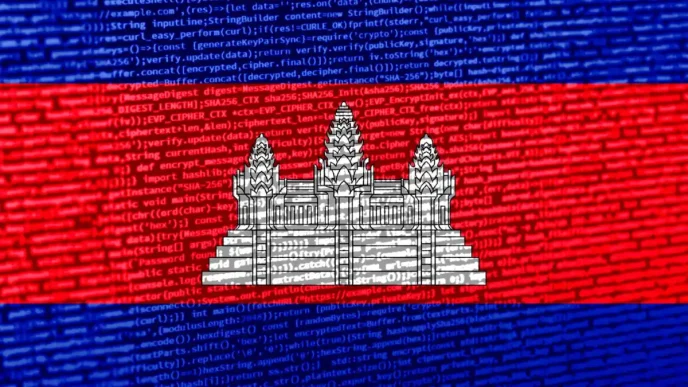In a moment that many Filipinos thought they would never witness, former President Rodrigo Duterte has been brought before the International Criminal Court (ICC) in The Hague to answer charges of crimes against humanity. His arrest on 11 March, followed by a swift transfer to the Netherlands, marks a seismic shift in the pursuit of justice for the thousands killed during his brutal war on drugs. For a nation long scarred by impunity, this is a historic reckoning—one that raises profound questions about accountability, sovereignty, and the political future of the Philippines.
A Long Road to Justice
Duterte’s appearance before the ICC on 14 March, broadcast to the world from a courtroom in The Hague, is the culmination of years of international and domestic pressure. The charges stem from his administration’s anti-narcotics campaign, launched during his presidency from 2016 to 2022, which saw an estimated 6,000 to 30,000 deaths, many in alleged extrajudicial killings by police and vigilantes. Human rights groups have long accused Duterte of orchestrating a systematic policy of violence, a claim he has at times openly embraced, admitting personal responsibility for the killings while defiantly rejecting external scrutiny.
The ICC’s involvement dates back to 2018, when a preliminary investigation was opened into the drug war. Duterte’s response was to withdraw the Philippines from the court’s jurisdiction, a move that took effect in March 2019. He argued that the ICC was an infringement on national sovereignty—a stance that resonated with his populist base but was widely seen as an attempt to shield himself from accountability. Yet, under the Rome Statute, which the Philippines ratified in 2011, the ICC retains jurisdiction over crimes committed while a country is a member. A 2021 Philippine Supreme Court ruling reinforced this, affirming the country’s obligation to cooperate with ongoing investigations.
For years, progress stalled. President Ferdinand Marcos Jr, who succeeded Duterte in 2022, initially resisted ICC engagement, disappointing victims’ families and activists. But in a dramatic reversal, Marcos authorised Duterte’s arrest upon his return from Hong Kong on 11 March, followed by his immediate transfer to The Hague. The move signals a new willingness to align with international legal norms, though the government has downplayed its significance by framing it as cooperation with Interpol rather than a direct fulfilment of ICC obligations.
A Political Gamble for Marcos
Marcos’s decision to facilitate Duterte’s handover is striking, not least because of his own family’s history. The Marcos dynasty, exiled in 1986 after the fall of Ferdinand Marcos Sr, faced legal battles abroad, making this administration’s cooperation with an international tribunal all the more notable. It suggests a calculated political strategy—perhaps an attempt to distance Marcos from Duterte’s toxic legacy or to curry favour with international partners amid growing geopolitical tensions in the South China Sea.
Yet the move is not without risks. Duterte, though out of office, remains a formidable figure in Philippine politics. His cult-like following and ability to intimidate officials have ensured that no domestic charges have been filed against him, despite his own admissions of responsibility for the drug war’s violence. His family, too, wields significant influence. Vice President Sara Duterte, who resigned from Marcos’s cabinet and has since declared open political warfare against him, remains a potential contender in future elections. Her inflammatory rhetoric—including a chilling claim that she had hired an assassin to target Marcos and other senior figures should she be harmed—underscores the high stakes of this confrontation.
Marcos, known for avoiding direct conflict even in the face of Duterte’s taunts, has played a delicate game. By surrendering Duterte to the ICC, he may hope to neutralise a powerful rival while projecting an image of principled governance. But if public sentiment turns against this perceived capitulation to foreign authority, or if Duterte’s base mobilises in his defence, Marcos could face a backlash that undermines his presidency.
Legal Foundations and International Implications
The legal basis for Duterte’s transfer to the ICC is rooted in both international and domestic law. The Rome Statute obliges member states—or former members for crimes committed during membership—to cooperate with the court. Additionally, Republic Act No. 9851, a 2009 Philippine law defining crimes against humanity, explicitly allows authorities to surrender suspects to international tribunals if another court is already prosecuting the case. The discretionary nature of the law—using “may” rather than “shall”—gave Marcos room to refuse, making his decision to act all the more significant.
Internationally, Duterte’s trial could set a precedent for holding powerful leaders to account, particularly in regions where impunity has long been the norm. For the ICC, which has faced criticism for its perceived focus on African states, prosecuting a former Asian head of state is a chance to demonstrate its global relevance. Yet it also risks reigniting debates over sovereignty, with critics in the Philippines and beyond likely to echo Duterte’s argument that the court oversteps national boundaries.
For victims’ families, the trial offers a glimmer of hope after years of despair. Many have lost loved ones to unexplained police operations or vigilante violence, often with no recourse in a domestic system reluctant to challenge Duterte’s influence. While the ICC process is unlikely to deliver swift justice—trials can take years, and convictions are not guaranteed—it represents a symbolic victory for accountability over impunity.
The War on Drugs: A Legacy of Blood
At the heart of the case is Duterte’s war on drugs, a policy that defined his presidency and polarised the nation. Launched with the promise of eradicating narcotics, it quickly descended into a campaign of violence, with police and unidentified gunmen targeting suspected users and dealers, often in impoverished communities. Official figures cite over 6,000 deaths in police operations, but human rights organisations estimate the true toll could be five times higher, with many killings uninvestigated or misreported as “resisting arrest.”
Duterte’s rhetoric fuelled the bloodshed. He famously urged police to kill suspects and promised them immunity, while publicly declaring that he would take responsibility for the campaign’s excesses. Such statements, alongside allegations of a systematic policy targeting vulnerable populations, form the basis of the ICC’s case for crimes against humanity.
The policy’s impact lingers. Families remain traumatised, communities are fractured, and trust in law enforcement is at an all-time low. While some Filipinos credit Duterte with reducing drug-related crime, others see his methods as a grotesque violation of human rights—a stain on the nation’s democratic credentials.
What Lies Ahead?
As Duterte faces the ICC, the Philippines stands at a crossroads. A conviction could embolden efforts to address past abuses, not just under Duterte but across decades of political violence. Yet if the trial falters, or if Duterte’s supporters rally to portray him as a martyr, it could deepen divisions and undermine faith in international justice.
Marcos, too, faces a test. His decision to cooperate with the ICC, whether driven by principle or pragmatism, has reshaped the political landscape. Balancing domestic pressures with international expectations will require careful navigation, especially as tensions with the Duterte clan intensify.
For now, the world watches as a once-untouchable leader stands trial. Duterte’s fate may hinge on legal arguments in The Hague, but its reverberations will be felt across the Philippines, where justice—long delayed—has taken a tentative step forward. Whether this marks the beginning of a new era of accountability or a flashpoint for further conflict remains to be seen. What is certain is that this moment, captured on screens from Manila to The Hague, will echo in the nation’s history for years to come.














